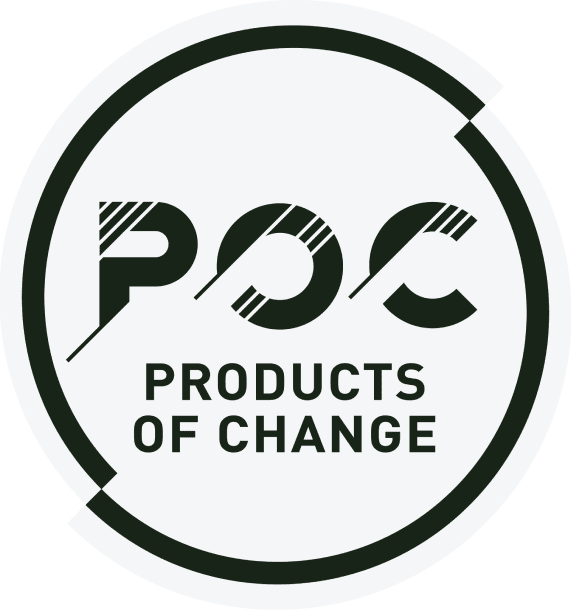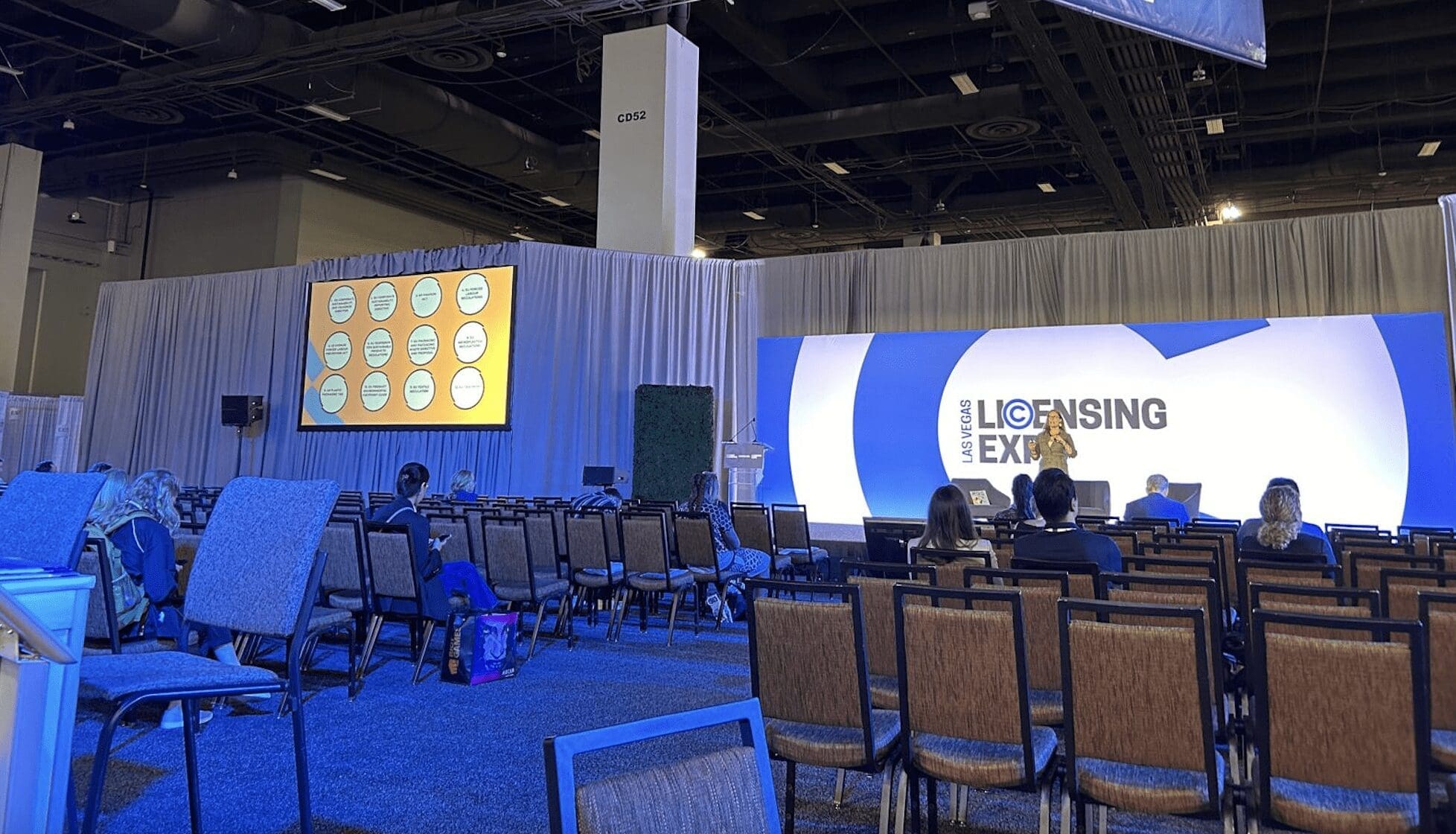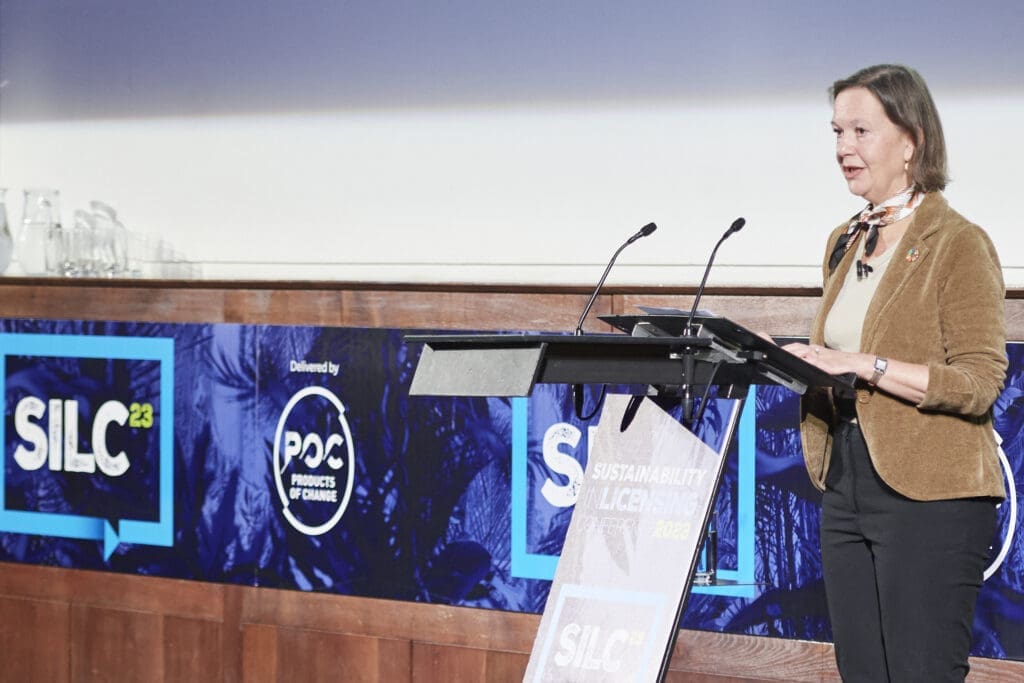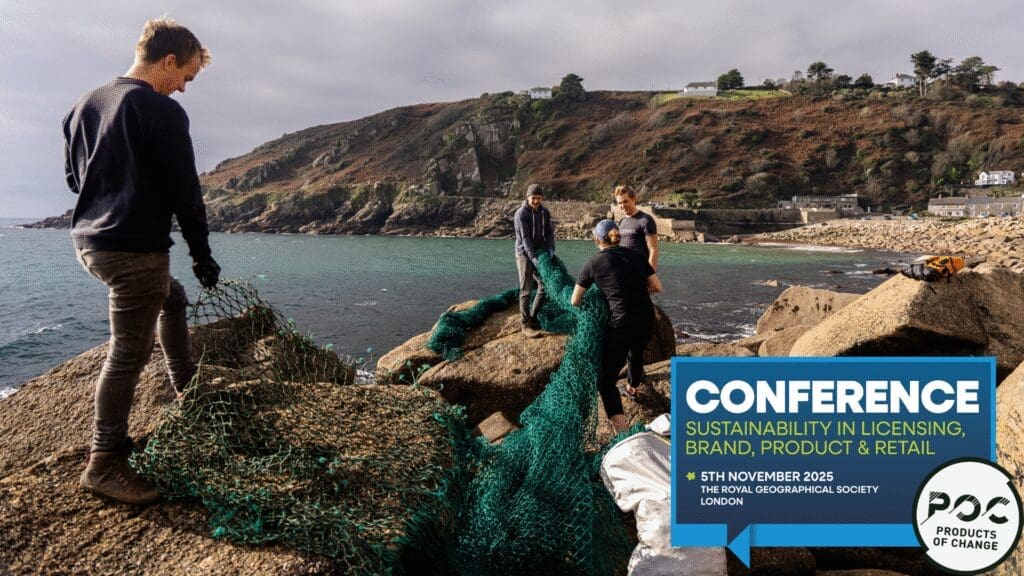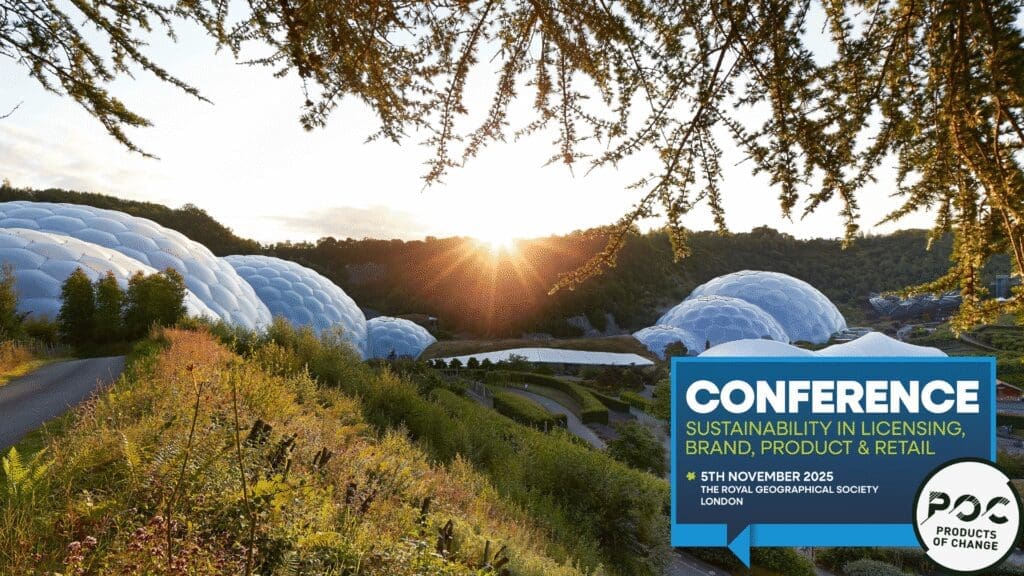From the LEGO Group’s Build the Change and Smiley’s Future Positive mission to transform the industry from within, to the evolving technology – such as Fabacus’ digital product catalogues and the Dayrize product impact scoring systems – helping brands embrace product sustainability and customer engagement; when the announcement was made that this year’s Licensing Expo was to explore the theme ‘brands at play’, Products of Change understood the assignment.
Building the Change with the LEGO Group
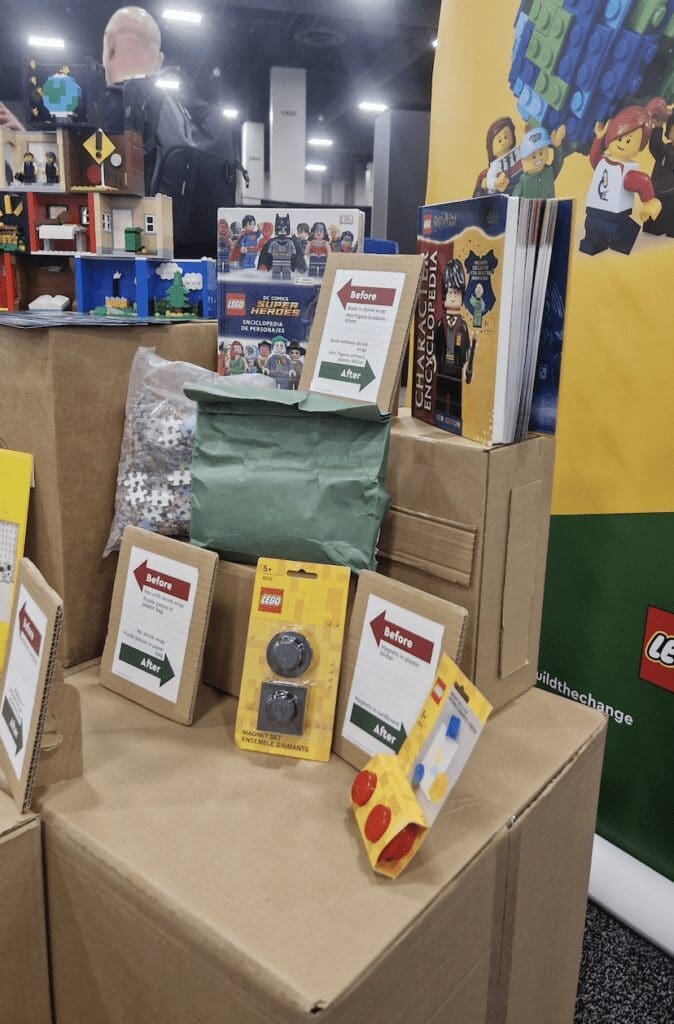
At the tail end of March this year, the United Nations finally set an official date in the diary for the first ever International Day of Play.
Recent research surveying more than 25,000 children from across 36 countries reveals that 75% of young people don’t believe adults take play seriously enough. This is the drum the LEGO Group has beaten for the last 17 years, ever since the launch of Build the Change.
A global, non-profit sustainability education programme now funded by the LEGO Foundation,
Build the Change is the LEGO Group’s acknowledgement that the brain learns best through play. Last year, it reached over two million children.
“It’s about listening to kids, getting their ideas on how to solve real world problems, and then amplifying that message,” says Anders Juul, senior global programme manager at the LEGO Group. “We can encourage communication, creative thinking, and collaboration while using our power to knock on doors and amplify kids’ voices.”
In 2021, for example, the LEGO Group played an active role in Glasgow’s COP26 climate conference by presenting its Build the Change campaign to dignitaries and representatives.
Detailed within was not only the LEGO Group’s manifesto to empower children but the demands and expectations of children today from those currently shaping their future. As such, Build the Change has become the forum for the youngest generation to speak their minds about sustainability.
Most recently, the LEGO Group attended the fourth round of Intergovernmental Negotiations by Committee in Ottawa, Canada as part of the United Nation’s endeavour to draw up a Global Plastics Treaty and provide a legally binding text on the world’s approach to the plastic pollution crisis.
A “megaphone for the voices of children”, the LEGO Group might just be one of the strongest envoys the future generation has at such discussions. And that’s a chance to really Build the Change.
Changing systems from within… the Smiley Future Positive way
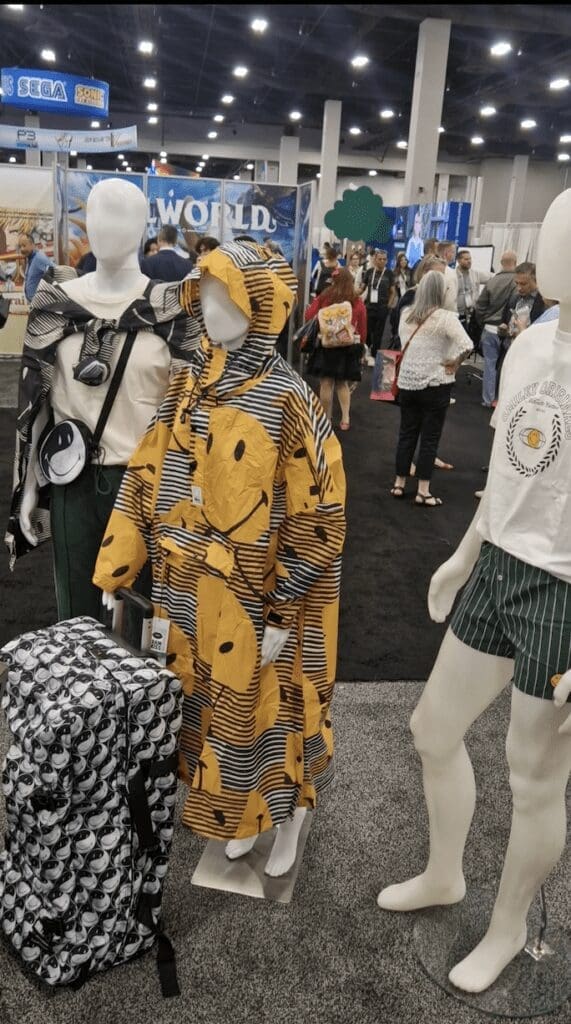
It will take more than one scribe to rewrite the future and Smiley’s Future Positive is working to change the brand licensing industry from within. Corresponding with its partnership with the United Nations to deliver UN Sustainable Development Goal 12: responsible production and consumption, Future Positive is about striking balance.
It’s an initiative that demands more of consumer products by bringing brands together to curate a collection of more responsible products and a 10- year plan to positively and sustainably transform 100% of Smiley’s licensing portfolio.
“Consumer goods are an absolute necessity to the livelihoods of billions of people. They create our cultures,” says Nicolas Loufrani, ceo at The Smiley Company. “But the problems we create are enormous. We must absolutely change the way we produce and recycle everything.”
Future Positive already works with partners across fashion and apparel, bags, books, greeting cards, gifts and home products, and beverages. The plan, however, is to extend its ethos across all the product categories Smiley currently spans.
“There has been great reaction to the movement, and we have only had positive comments,” says Nicolas. “But this is going to require massive efforts and investments to transform into concrete actions by licensees and retailers.
“But I always tell everyone that progress beats perfection, and I celebrate our progress.”
A new lease of life… and licensing
With laws including the Right to Repair, the CSDDD’s Ecodesign Regulation, and Extended Producer Responsibility trickling into industry over the coming years, greater onus is going to start being placed on the end of product life processes being adopted.
At the end of March 2024, Mark Litos, the co-founder of Refried Apparel rescued 50,000 pairs of denim jeans from going up in flames. An overseas mass retailer had over-ordered on their stock for that season and was looking for a means to ditch its ‘waste’.
Refried Apparel, a Massachusetts textiles expert bringing skilled seamstress work and apparel manufacturing back to the USA, fields calls like this nearly every day. As one of the country’s most prestigious fashion upcycling businesses, Refried Apparel sees the value in waste. Deadstock, damages, failed designs on garments, and over orders caused by ‘glitches in systems’ are resources to be treasured, used, and sold back to retail in the shape of unique, one-off pieces, all at a premium. “Giving items of unsaleable clothing a new, upcycled, up- market, and unique lease of life just captures everyone’s attention,” says Mark.
“We operate on the dead stock we can get our hands on. So, it’s about being flexible and the brands we work with understanding our non- traditional processes and methods. And the brands we work with today? They have been amazing. They really see the benefit of what we do.”
Today, Refried Apparel works in licensed and non- licensed goods with resorts, professional sports brands (including the MLB, NFL, NHL, and others), even corporate brands. With a team of home-grown, skilled creative talent, the Refried Apparel appeal has spread like wildfire across the scene.
Total transparency with Fabacus
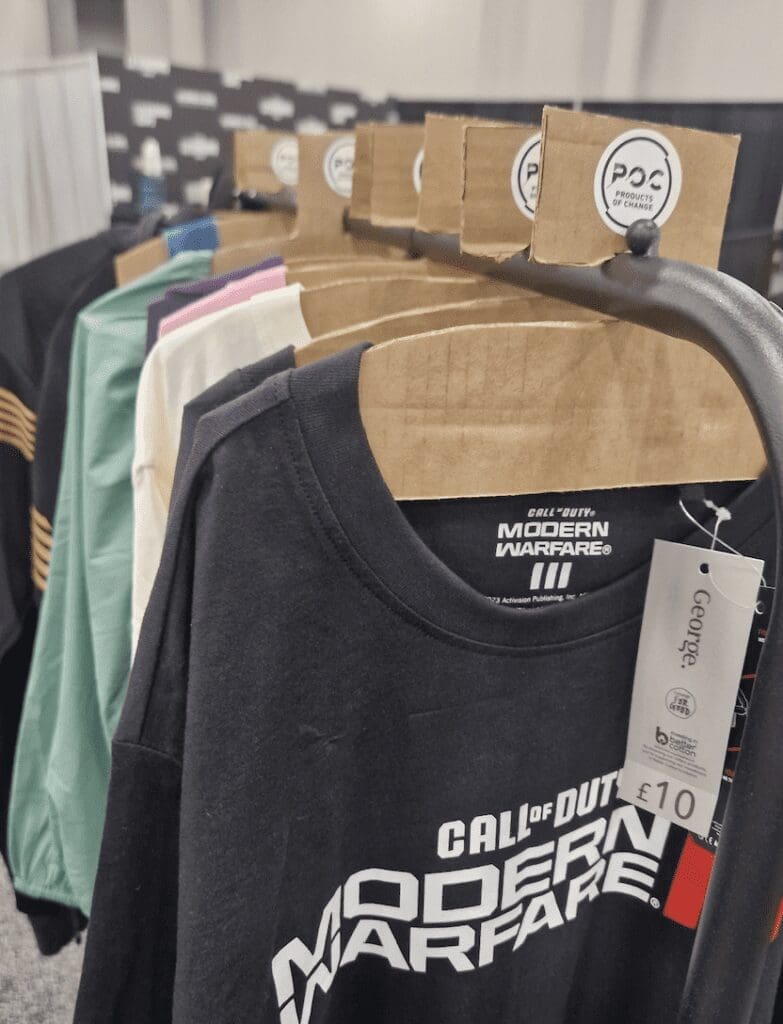
With word out that Chinti + Parker has partnered with the technology provider, Fabacus to pilot its Digital Product Passport across a collection of Peanuts apparel, so the licensing industry got its next taste of the future of fashion.
And, with the Corporate Sustainability Due Diligence Directive now approved in European Parliament, requirement of all textile producers to provide digital product passports will begin as early as 2026.
Described as digital product identifiers that “log the end-to-end lifecycle and journey information” (encompassing materials and manufacturing processes used; supply chain partners; and the environmental implications of a product), Digital Product Passports are tools enabling consumers to make more informed decisions about the products they buy.
“And in line with the ‘brands at play’ theme of this year’s Licensing Expo, we want to re-frame Digital Product Passports as not only being an emerging regulatory requirement, but also an innovative business opportunity,” says Jonathan Baker, cco at Fabacus.
Last summer, Fabacus partnered with the responsible fashion brand, Nobody’s Child to launch its first iteration of the Passport, disclosing circular product information including carbon and water footprints in line with the developing EU regulations.
“DPPs represent more than a mandated short-term brand legislation,” says Jonathan. “They signify long-term opportunities to connect with audiences and will play a pivotal role in extending the life of a product, creating value within the circular economy, for example, by integrating digital links to pre-loved platforms and how to repair and recycle the product.”
A library of innovation
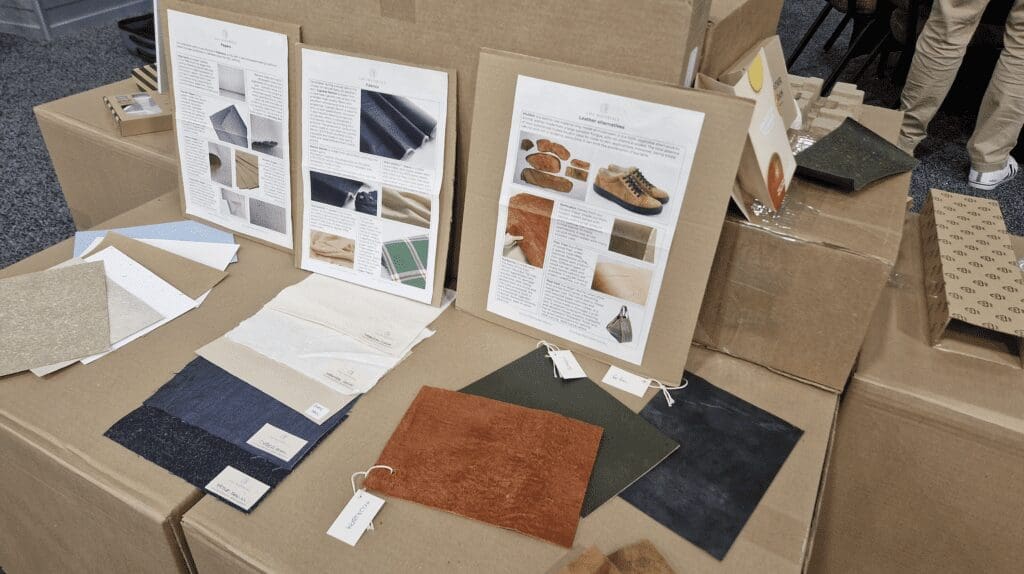
Visitors to the Products of Change booth (S226) will be able to explore a library of industry shaping innovation, including a breakdown of some of the more sustainable materials product developers and designers can be using to create the industry of tomorrow; as well as a showcase of the companies and products that are pushing new boundaries in licensing today.
The Natural History Museum will be showcasing a selection of products developed in partnership with the award-winning home specialist retailer, Dunelm. The retail brand was shortlisted in this year’s Brand & Lifestyle Licensing Awards’ sustainability category for its pursuit of responsible production and consumption while making use of more sustainable materials and resources – including recycled polyester, 100% cotton, and even hollowfibre – in the development of its NHM collection.
Not only this, the collection takes inspiration directly from the flora and fauna found in some of the UK’s most vulnerable wetlands and other natural areas.
Finally, the booth (S266) will also play host to this year’s shortlisted finalists in the Licensing International Excellence Awards’ Best Sustainability Initiative category: Delipap’s Moomin Baby Diapers; Groundtruth’s Ed Stafford Sustainable Duffle Bag; Boxed Water’s Minions range; The Narwhal Ocean Research Centre x Erdos collection of clothing; Recycle to Read’s Tesco partnership; and the Landmark Project’s National Wildlife Federation apparel collection.
